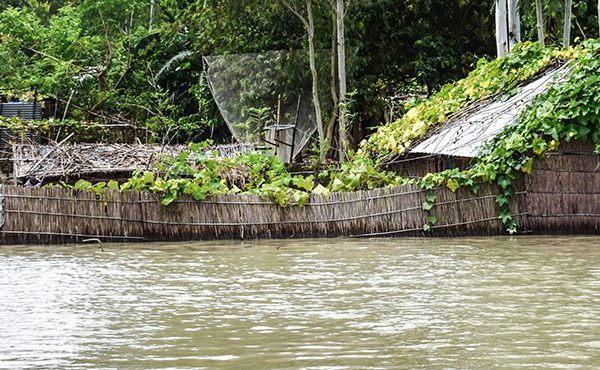May 15, 2011
Reading Time: 3 minutes
In the last few centuries there have been giant leaps in the advancement of the human race. We have seen profound progress in virtually every field, from science to arts and culture to business. Despite all this progress, we have not been able ensure that no one goes hungry in today’s world. According to a definition provided by the World Food Summit in 1996 “Food security exists when all people, at all times, have physical and economic access to sufficient, safe and nutritious food to meet their dietary needs and food preferences for an active and healthy life”. A large percentage of people do not fall under this category of people who have such access.
In the last few centuries there have been giant leaps in the advancement of the human race. We have seen profound progress in virtually every field, from science to arts and culture to business. Despite all this progress, we have not been able ensure that no one goes hungry in today’s world. According to a definition provided by the World Food Summit in 1996 “Food security exists when all people, at all times, have physical and economic access to sufficient, safe and nutritious food to meet their dietary needs and food preferences for an active and healthy life”. A large percentage of people do not fall under this category of people who have such access.
It is no different for the common people of Bangladesh. The good news is the government, along with the combined efforts of many organisations are continuously striving to achieve food security and have come a long way. The problem of food security is very simple and should be mentioned. The amount of agricultural land available is not enough to produce enough food to feed every mouth. The traditional crops that have been used do not give the amount of yield necessary to feed the whole population. So with the progress of science, hybrid rice varieties were developed. Hybrid rice gives more yield than traditional varieties yielding more profits to the farmers and feeding more mouths, i.e. helping us in our goal to achieve food security.
In Bangladesh, we literally feed of rice, our main staple crop. For us food security primarily means producing enough rice. And in a country where there is a huge percentage of the population leaving under the UN poverty line, many cannot afford nutritious fruits and vegetables. The general people of our country try to eat enough to give them energy which will last for the day. It is like planning for today and not knowing what lies ahead. A typical meal of a poor Bangladeshi household consists mostly of rice and very little add-ons. But rice does not provide all the nutrition a human being requires. It might give the energy you need to last for a day but not the nutrition required for growth. According to the World Food Programme, most of the world’s hungry people live in Asia where micronutrient deficiencies are especially serious. Millions of people suffer from risk of illnesses, diseases, lack of growth or more simply lack of energy from the deficiencies of iron, zinc and necessary vitamins.
Zinc has been particularly missing in the rice of Bangladesh. Those who can afford meat do not need to worry, meat has the necessary zinc required. But most cannot in Bangladesh. The same is true for zinc supplements, which are too expensive for poor people to afford. They don’t eat meat or supplements and stay deficient of zinc. And they themselves are not aware of their ‘hidden hunger’, i.e. the lack of micro-nutrients.
Now, why is zinc so important for the human body? For an adult, the absence of zinc means a weakened immune system, increased frequency of infectious diseases. Pregnant women are the ones who are in grave danger from zinc deficiency. It can lead to birth complications and even death. It results in low birth weight babies and babies suffer from ‘stunting’, which means a loss of height and the body might not fully develop.
Fortunately scientists are now on the verge of developing zinc fortified rice. It fortifies rice with zinc and solves a major nutrition problem that we face. Harvest Plus, is an independent research organisation founded by the Consultative Group in International Agricultural Research (CGIAR) and co convened by the International Food Policy Research Institute (IFPRI) and the International Centre for Tropical Agriculture (CIAT). They are hoping to release zinc fortified rice for widespread cultivation by 2012. BRAC and Harvest Plus have together started work to successfully release zinc fortified rice in Bangladesh to meet the micro-nutrient deficiencies.
To make it a sucess and ensure active participation of concerned groups, BRAC organised a workshop at the Ruposhi Bangla Hotel for Agriculture experts on zinc fortified rice. The Honourable Minister of the Ministry of Agriculture, Matia Chowdhury MP was present as chief guest along with other dignitaries of the agriculture sector. She said the government will support better cropping and hybrid varieties as long as it is ensured that these are safe and beneficial. Mr Mahabub Hossain, Executive Director of BRAC chaired the event.
Looking forward, the real challenge is to keep the taste of rice as people like it, other wise they will not consume it. And keep price at check because people are not willing to pay a higher price for ‘hidden hunger’ i.e deficiencies they are not aware of. The new breed of rice, fortified with zinc, promises to be tasty and cost efficient which can essentially solve the zinc deficiencies of millions of poor people in Bangladesh. It will be a huge step in achieving food security.
Read about BRAC Agriculture & Food Security Programme
Read article in The Daily Star: Zinc-enriched rice in 2 years
Read article in The Daily Star: Zinc-enriched rice in 2 years
By Faisal Rezwan
BRAC Communications





